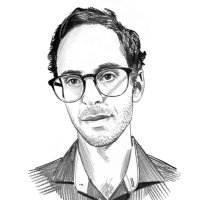
Steven Quartz PhD
@StevenQuartz
Professor @Caltech. Neuroscience & neurophilosophy of reward, ethics, welfare. Computational neuroscience. Human origins. Cyclist pursuing masters hour record.
ID:369155821
https://www.hss.caltech.edu/people/steven-r-quartz 06-09-2011 21:33:10
2,1K Tweets
1,0K Followers
476 Following











1) I did a deep dive on the debate over whether social media is ruining teens' mental health. TLDR: The evidence is much weaker than Jonathan Haidt suggests, but not as negligible as his critics claim.
vox.com/24127431/smart…



In The Anxious Child, Jonathan Haidt suggests that: “There was little sign of an impending mental illness crisis among adolescents in the 2000s. Then, quite suddenly, in the early 2010s, things changed.” However, in my view, CDC data tells a different story. 🧵 #MentalHealthcrisis
